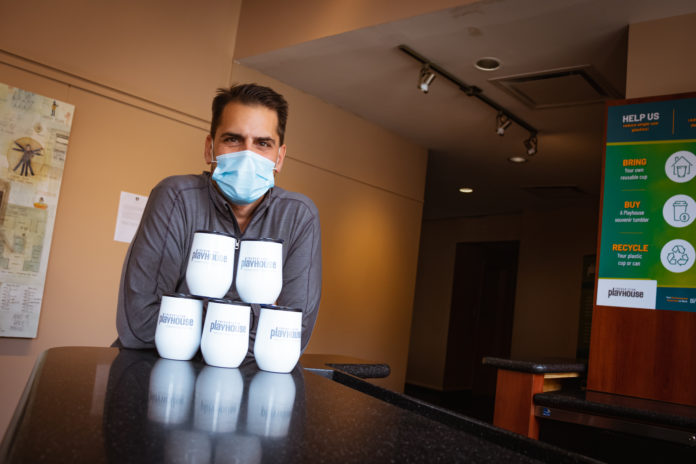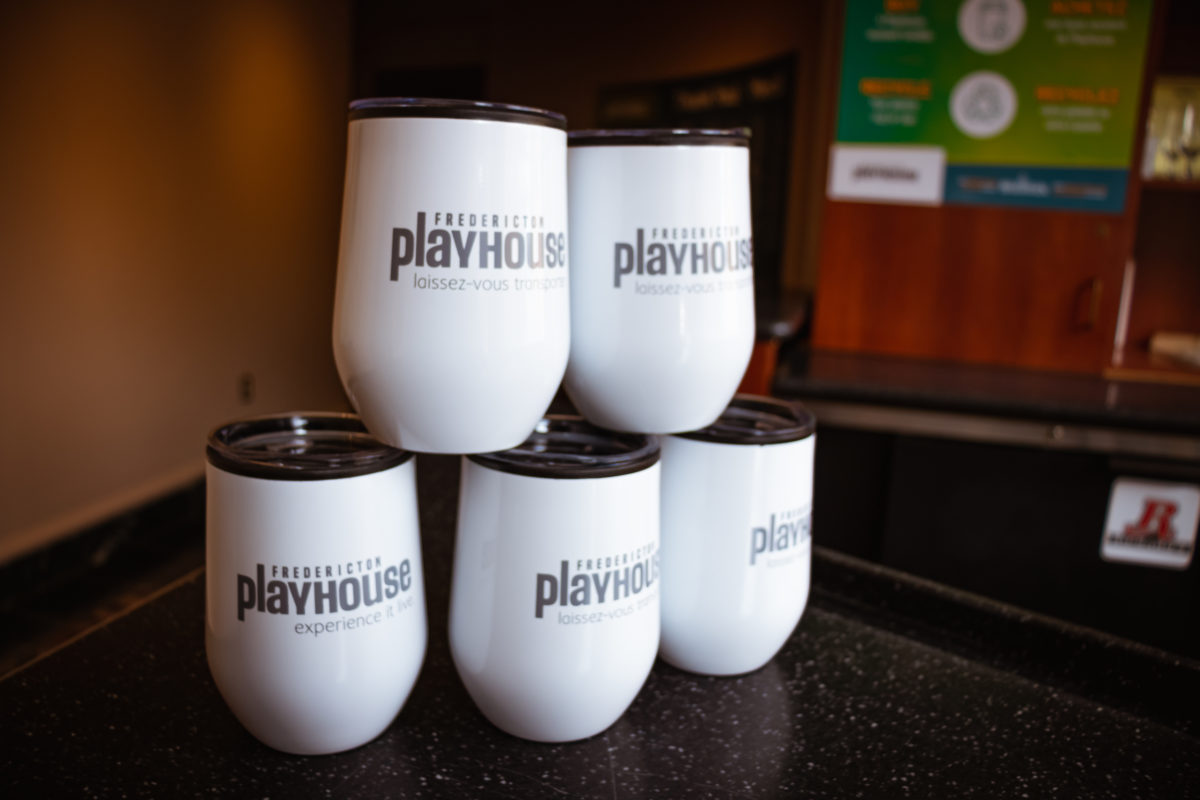

The Fredericton Playhouse is implementing its new “Bring Your Own Cup” initiative to reduce single-use plastics.
People attending the theatre will not receive plastic cups at the bar, but rather, must bring their own cups or buy a wine tumbler.
Tim Yerxa, the executive director of the Playhouse, made this decision because of concerns about the environment from staff, attendees and even the city of Fredericton.
“We’re an organization that believes in contributing to all kinds of different facets of society in a positive way,” he said. “Certainly environmental action is one of those things.”
Because of the pandemic, the Playhouse had to close for a while. When it opened, they still struggled with a lack of customers. This left them with more time to focus on applying necessary changes.
“One of the things we’ve been thinking about … [is] how do we reduce the amount of single use plastic,” said Yerxa.
The Playhouse is advertising this initiative via Facebook and other social media platforms. But, Yerxa said that people are still new to this concept and might not remember to bring their own cup, so the Playhouse started selling their own wine tumblers.
“We decided to make nice [wine tumblers] and put our logo on them so that people might want to have them as a souvenir,” said Yerxa. “We’ve been surprised at how many people want to buy these cups, which is great.”

The initiative is part of a larger strategy to reduce plastic waste. The Playhouse stopped giving plastic straws and serving water in plastic cups, they added garbage separation systems in the lobby and installed water bottle filling stations.
“We did mostly simple things and they sound silly, but we had to think these through.”
The costs for the transition into the initiative were partially covered by the New Brunswick Environmental Trust Fund program.
The program provides funding for projects that have concrete results in protecting, preserving and/or promoting the province’s natural environment.
“We’ve felt very supported,” said Yerxa. “I think other organizations, maybe they’ll follow suit and do similar projects in the future.”
Yerxa hopes their efforts lead to positive, tangible effects on the environment and encourages people to take action in reducing single-use plastic.
“The science is there … it’s just not a good thing for the environment,” said Yerxa, “Every sector really can find a way to participate in environmentalism in different ways.”
